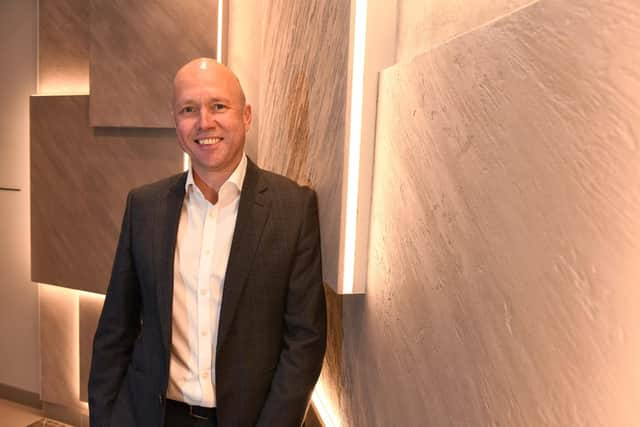Leeds is ready to surf second wave of tech growth: Steve Harris
Data from Leeds Digital Festival and The Data City shows that the Leeds cyber sector grew by 9.9 per cent during 2023, while the UK cyber sector as a whole eased by 0.6 per cent.
At the same time, venture capital investment into Leeds startups grew by 88 per cent last year, which is a really important indicator of the city’s attractiveness as a place to invest and the quality of the businesses in the city.
Advertisement
Hide AdAdvertisement
Hide AdThat’s in no small part down to the supportive, collaborative digital community.


Entrepreneurs in the city back each other, with established players sharing advice and encouragement with up-and-comers.
There’s an advanced infrastructure to support this process, including Lloyds Bank, Leeds City Council, and the high-quality advisory community.
It’s very telling that there are more than 70 tech sector networks – some formal, some less so – that regularly meet across the city to share their insights and experiences.
Advertisement
Hide AdAdvertisement
Hide AdAnd then you can add events such as Leeds Digital Festival and Climb 23 that not only support what is already in Leeds but attracts a much wider interested audience.
And because Leeds is an attractive place to develop a tech business, investors want to be here too.
A particular strength of Leeds’ technology sector is the application of data.
High quality data is fundamental to the future of artificial intelligence, which presents a real market opportunity for tech businesses in Leeds.
Advertisement
Hide AdAdvertisement
Hide AdThe city has a longstanding strength in professional services, financial services and healthcare; all sectors that generate huge amounts of data and where the application of artificial intelligence holds enormous potential.
So, could data drive the next phase of Leeds’ tech transformation? The city is already a leading location for artificial intelligence, with particular specialisms in digital, health, fintech, legaltech and more.
It’s something we’ve also spotted at Lloyds Bank; we’ve been working with The Data City, based in Leeds, which uses its AI-driven platform to create a map of the global economy.
It compiles open data on more than 94 million companies around the world, which can be used by researchers, policy makers and more to inform decisions about strategy and investment.
Advertisement
Hide AdAdvertisement
Hide AdThere’s some exciting work going on in academia too, which will create a pipeline of the kind of talented data experts the sector will need to support its growth.
Leeds-based PinPoint Data Science has been collaborating with Leeds Teaching Hospitals NHS Trust and the University of Leeds to develop a blood test that uses artificial intelligence to identify the risk of a patient having cancer, for example.
And the Leeds Institute for Data Analytics, part of the University of Leeds, is pioneering research in data science and artificial intelligence, working with partners in business, government and the third sector.
At the same time, the Institute is helping drive diversity in the sector, with a scholarship programme that works to encourage more people from underrepresented backgrounds into the data science and AI industries.
Advertisement
Hide AdAdvertisement
Hide AdLeeds has created a virtuous circle whereby entrepreneurs of all backgrounds can find the advice and encouragement they need to develop and prosper, which in turn attracts investors, generating even more momentum.
The city is compact enough to foster a close community, but big enough to have a real national and international impact. I believe these qualities will stand us in good stead as we enter the next phase of Leeds’ tech-driven transformation.
Steve Harris is National Head of Tech Sector for Lloyds Bank
Comment Guidelines
National World encourages reader discussion on our stories. User feedback, insights and back-and-forth exchanges add a rich layer of context to reporting. Please review our Community Guidelines before commenting.